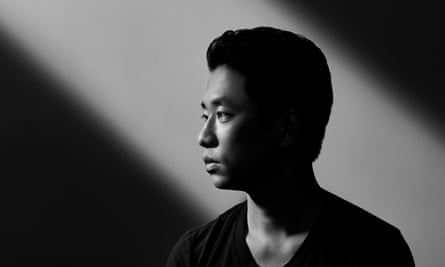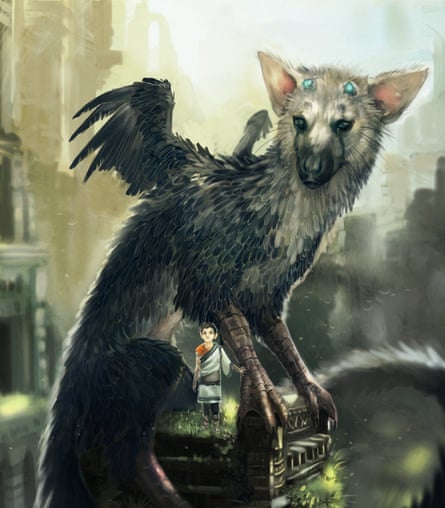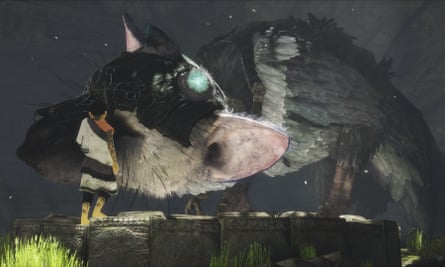‘Muted, soft, like watercolours’: The Last Guardian’s soundtrack was an appeal to the heart
From the opening moments of The Last Guardian, developer Japan Studio and legendary game director Fumito Ueda need you to understand one simple thing: this game is about empathy. Before you are given the opportunity to learn anything about its gorgeous, ruined world, you must heal the broken creature you find in your cell. Taking in its cropped horns and the spears jammed into its back, you know something is wrong. This creature, Trico … it is feral, it is feared. And yet, you must care for it. You know that, immediately. Anyone who has ever had a troubled pet will know how it feels to pursue compassion through fear, demonstrate love despite frustration.
“I believe the reason Ueda-san’s games are so successful in establishing a bond, whether it be with a girl in Ico, or a horse in Shadow of the Colossus, is because he lets those moments play out without music,” says composer Takeshi Furukawa, who penned the score for The Last Guardian. It’s odd to hear a composer praise the space in between the notes, but it makes sense when you listen to the game, because for the most part, the score is notably absent. It says more with silence than it does with anything else.
“We intentionally kept the music understated,” explains Furukawa. “The gameplay objective of The Last Guardian is to develop a bond with Trico, and the way for people to feel empathy is to be participatory. The game achieves this by leaving room for the players to interpret and react to situations on their own, without music spoon-feeding them the emotion of the narrative.”

If you know previous works by Ueda (and you should; filmmaker Guillermo Del Toro once claimed that Ico and Shadow of the Colossus are video games’ only real masterpieces), this focus on player agency is par for the course. The esteemed director usually realises his games using “design by subtraction”, removing any element that isn’t deemed to serve the game meaningfully as development progresses. But The Last Guardian deviates from this philosophy slightly, loading the game with more – more music, more mechanics, more emotional gut punches. And, like Trico follows your nameless boy hero, Furukawa’s music follows Ueda’s vision.
“Ueda-san is certainly known for his design-by-subtraction, but my interpretation is that he did not necessarily go out of his way to keep things minimal with The Last Guardian,” he explains. “I believe he makes a conscious choice of what the key moments are and to establish an ebb-and-flow, so that things lead up to them. I, too, was not overly conscious about keeping the music minimal. My Japanese sensibilities of ‘less is more’ certainly helped shape the score, but I don’t recall having to make conscious efforts to do less musically.”
Furukawa tells me that the “harmonic language of the score” is heavily inspired by French impressionism, making liberal use of sevenths and extensions in the chords to achieve the quietly affecting music that falls into the foreground during battle sequences and story moments. “This results in the colours of the score feeling muted and softer like watercolours,” says Furukawa. “In contrast, I visualise triadic harmonies as being brighter and vivid, like bold oil paintings.”

Trico – with his avian claws and feathers, his feline ears, and his murine tail – was designed to appeal to our emotions. To be a pet, of sorts. Ueda grew up in a house full of animals, and knew the perks and the pitfalls of bonding with animals that are meant to be wild. His aim, in painstakingly getting The Last Guardian to work on PlayStation hardware, was to emulate the relationship between man and beast in all its beautiful, ugly reality.
While the tech team worked on the animation and graphics – having Trico’s ears twitch like a cat when he felt uncomfortable, having him roll over and wander off like a miscreant dog when he was bored – Furukawa needed to create a score that didn’t overdo it, that could tread the line between serious and playful, much like Trico himself.
“We avoided underscoring the actions of, and interactions between, Trico and the boy as it would have been too much, and at worst could have made the game feel childish,” explains Furukawa. “Instead, the score endeavours to establish a mood, and highlight the scope and grandeur of the world (this also is a common concept with impressionism).”
Though the conception and writing of the score was sedate, the performance and recording was not. Ueda wanted the music to appeal more broadly than his previous titles, and so the development team made the decision to go for a “more Western orchestral sound”.
after newsletter promotion
“The Last Guardian doesn’t directly reference anything from Oshima-san [Ico] and Otani-san’s [Shadow of the Colossus’] works. Those scores are magnificent, and had I tried to emulate anything from them, my attempt would have been a pastiche at best,” says Furukawa.
Instead, Japan Studio opted to record with the London Symphony Orchestra, Trinity Boys Choir, and the London Voices – an achievement that is “certainly on the bucket-list for many, if not all, composers”, says Furukawa. “I feel the London orchestras have a distinct darker colour, especially the brass and woodwinds. The orchestral tuttis are lush and expansive yet beautifully restrained to my ears. Perhaps the term ‘understated’ best describes my perception of the wonderful British musicians, and that is why I thought they would be perfect for this project.”

The Last Guardian was divisive at launch. Though some adored the title for its unflinching study of man and beast, and the uncomfortable truths that come with it, others were frustrated by its cumbersome controls, and Trico’s aggravating habit of ignoring commands. But this, to me, was the point. Despite everything – despite his terrible power, despite his habit of nonchalantly ignoring you, despite his tendency to wander off when you’re trying with every cell of your being to save his damn life – you would come to love Trico. You would feel the bond between him and the boy through the controller, down into the veins in your hands, and on into your heart.
Furukawa and his score knew when to step back and let the wordless bond between boy and animal take over, and in its absence, you only felt your heart grow fonder. It takes a masterful musician to know when something is better without music, and there is no better example of that than The Last Guardian.
Stay connected with us on social media platform for instant update click here to join our Twitter, & Facebook We are now on Telegram. Click here to join our channel (@TechiUpdate) and stay updated with the latest Technology headlines. For all the latest Technology News Click Here
